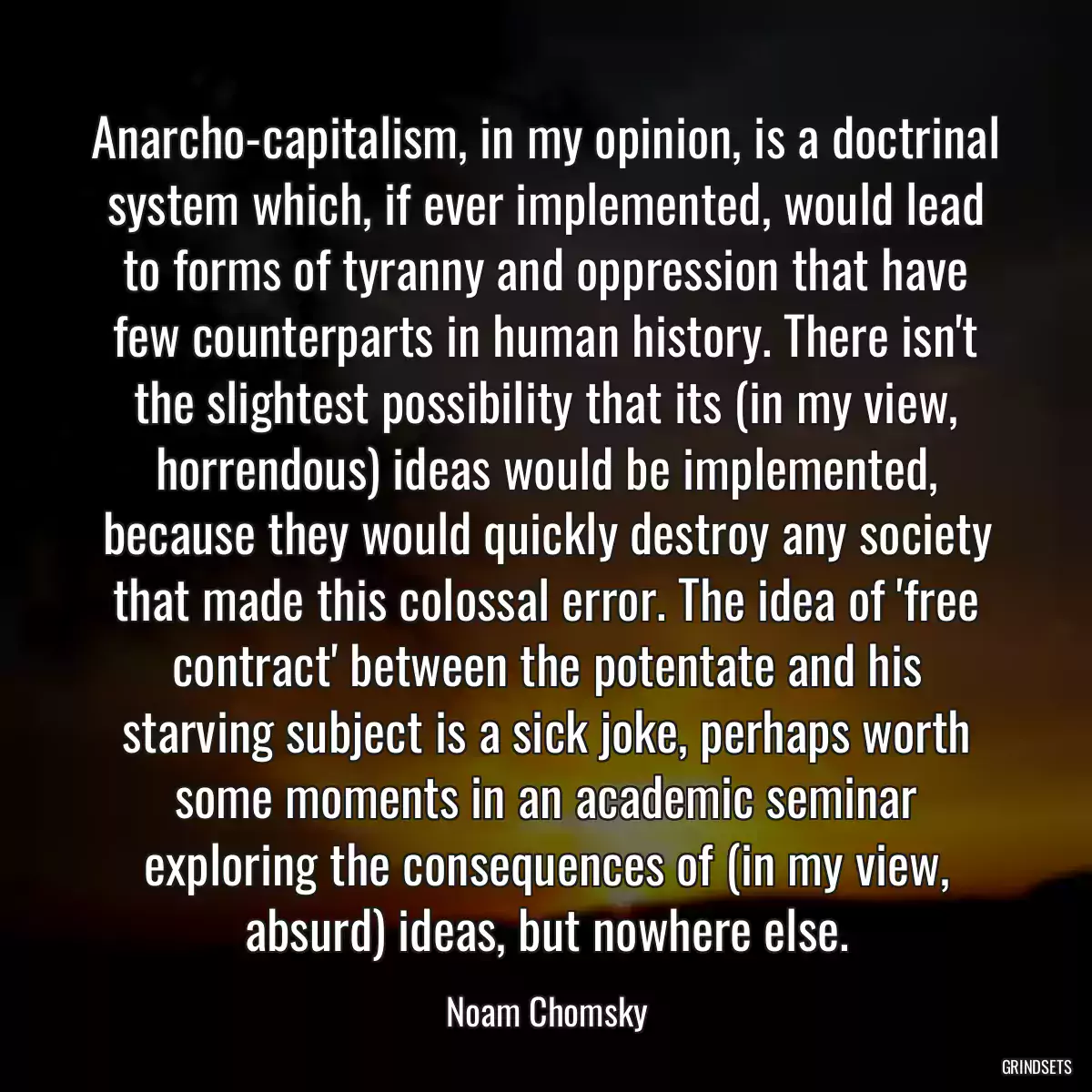
Anarcho-capitalism, in my opinion, is a doctrinal system which, if ever implemented, would lead to forms of tyranny and oppression that have few counterparts in human history. There isn't the slightest possibility that its (in my view, horrendous) ideas would be implemented, because they would quickly destroy any society that made this colossal error. The idea of 'free contract' between the potentate and his starving subject is a sick joke, perhaps worth some moments in an academic seminar exploring the consequences of (in my view, absurd) ideas, but nowhere else.